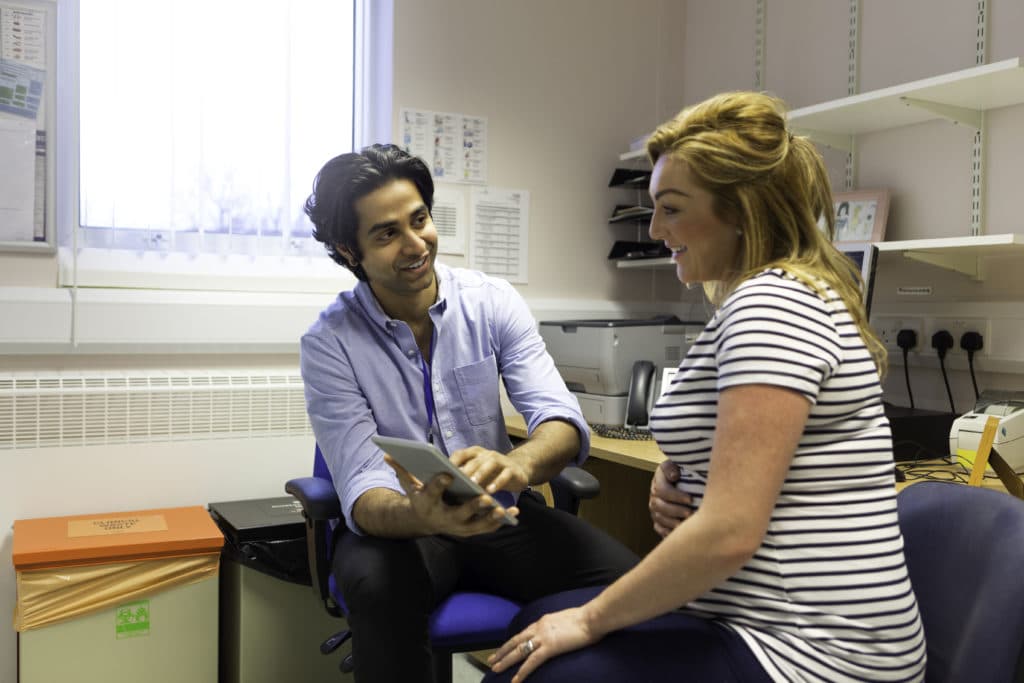Why Do We Need Breast Cancer Clinical Trials?
A breast cancer clinical trial is really the action end of the development of new treatments and interventions for breast cancer. This is where we’re trying to work out if the new treatment works, how well it works, whether it works better than the current standard treatments, what the side effects are and what the costs are.
In the development of new drugs for breast cancer a lot of work has gone on in the laboratory for many, many years before new treatments are trialled in women. Those laboratory experiments would be going on with cells, cancer cells in the lab, and subsequently very often with laboratory animals and there’s a lot already known about the drug before that drug enters clinical trials in people.
Listen to the podcast
Breast Cancer Trials researcher Professor Kelly-Anne Phillips discusses the importance of clinical trials on the Breast Cancer Trials Podcast.
Are Clinical Trials Safe?
Before a clinical trial is approved there has to be a very comprehensive protocol written for the clinical trial. The protocol is like a handbook, if you like, although it’s a very detailed handbook, of how the trial will be conducted and it contains information about things like the rationale or the reason why the trial needs to be conducted, what the main questions are that we’re trying to answer with the clinical trial, who are the participants and what sort of participants would be suitable for the clinical trial, and exactly step by step how the trial will be conducted, what drugs will be given, in what doses and on what schedule.
In addition to that, there’s also a lot of information about exactly what information is to be collected on participants who are in the clinical trial. That protocol then gets very detailed peer review, so there are many scientists and clinicians who would look at the protocol and fine tune it, as well as lay people.
At Breast Cancer Trials we’re very lucky because we have our own Consumer Advisory Panel, these are people who are dedicated to helping us to make sure that we do the best research that we can from a consumer perspective. They’re very helpful for clinicians and researchers in helping us to ground our research, making sure that the questions that we’re asking are the ones that are really important to people with the disease, and making sure that the trials we conduct are conducted in a way that would be thought to be reasonable by the ordinary person in the community.
That’s another step in the development of a clinical trial. Once the protocol for a clinical trial is finalised and finished, it then gets completely independent ethical peer review at the various institutions at which the trial will be conducted. It’s only after all of those steps have occurred that the clinical trial would be open and start to recruit patients.
A specific trial that I’m involved in is the OlympiA clinical trial. This is looking at a new treatment for breast cancer that’s occurring in the setting of inherited gene mutations. Some women inherit a gene mutation that predisposes them to developing breast cancer and this trial is looking at if you get breast cancer in the setting of one of those inherited gene mutations, does this new drug add to the current standard of treatment that we have. It’s really asking the question, ‘We have all these standard treatments for breast cancer, and they work quite well in quite a lot of people, but there’s more we can do. This drug is targeted to work particularly in people with these gene abnormalities. If we add that to the standard treatment, will people get better outcomes?’ So that trial is designed so that it is comparing standard treatment versus standard treatment with the additional drug.
Why Participate In A Breast Cancer Clinical Trial?
I think there are a couple of motivations for people to go on clinical trials. Sometimes the main motivation is because the clinical trial might offer access to a promising new drug that the patient might otherwise not have access to, so there’s a sense that, ‘If I go on the clinical trial I might have a better outcome from my cancer than I might have had had I not been on the clinical trial’. That’s certainly a strong motivator both for women and also for their clinicians because clinicians are very motivated to do the best thing for their patients.
Another motivator is altruism. The idea that, ‘Well, it might help me, but even if it doesn’t help me it’s going to help people in the future who might have this disease’. Sometimes, with the trial that I was talking about before which is for people who have inherited gene mutations that other people in their family might also have, and those other people might also be at risk of cancer, there’s this sense that ‘I might be helping other people in my family who might develop cancer’. Sometimes when people are hearing about clinical trials for the first time – because I guess when people are diagnosed with breast cancer they come from a variety of backgrounds. We have women who come from very scientific backgrounds who might be in healthcare themselves who already know quite a lot about clinical trials before they’re in the situation of considering one for themselves, but we also have a lot of people who come from non-scientific backgrounds, and this is really the first time they’re hearing about a clinical trial.
I think those words ‘clinical trial’ can be quite frightening for people; it sounds cold and somewhat scary. I think the experience of being on a clinical trial is really the opposite of that for most people. Most people find that when they’re on a clinical trial, they’re getting an incredibly high level of support from the whole trials team. Rather than just seeing their doctors regularly and getting support from their doctors, there’s a whole range of clinical trials staff that they have access to and that are seeing them on a regular basis. People often find that very comforting and reassuring.
Over the decades we’ve seen multiple improvements in treatments for breast cancer. Many of these improvements have been incremental, step-by-step improvements each time improving the outcomes a little bit. Each clinical trial really builds on what’s gone before. What we’ve seen since the 1980s is a major improvement in survival rates from breast cancer. In the 1980s, only about 72% of women who were diagnosed with breast cancer would survive for five years. Now that statistic is well over 90%, and much of that comes down to new treatments that have been developed in clinical trials. The work that’s done in clinical trials goes even beyond that because we’re not only interested in improving survival, although obviously, that’s a major priority, we’re also very interested in improving quality of life of women living with breast cancer. So that’s another focus of Breast Cancer Trials.
The number of women that will be diagnosed with breast cancer during their lifetime, depending on whether you cut that at age 70 or age 80, it’s somewhere around 1 in 10 – is pretty phenomenal when you think about it. It remains an important issue. Apart from that, breast cancer remains the greatest burden of disease from cancer, and that’s because it affects women’s lives so dramatically, it often affects young women, and the treatments can go on sometimes for many years when women are living with breast cancer. So the burden of disease is high even though the cure rates are relatively high.
Support Us
Help us to change lives through breast cancer clinical trials research




